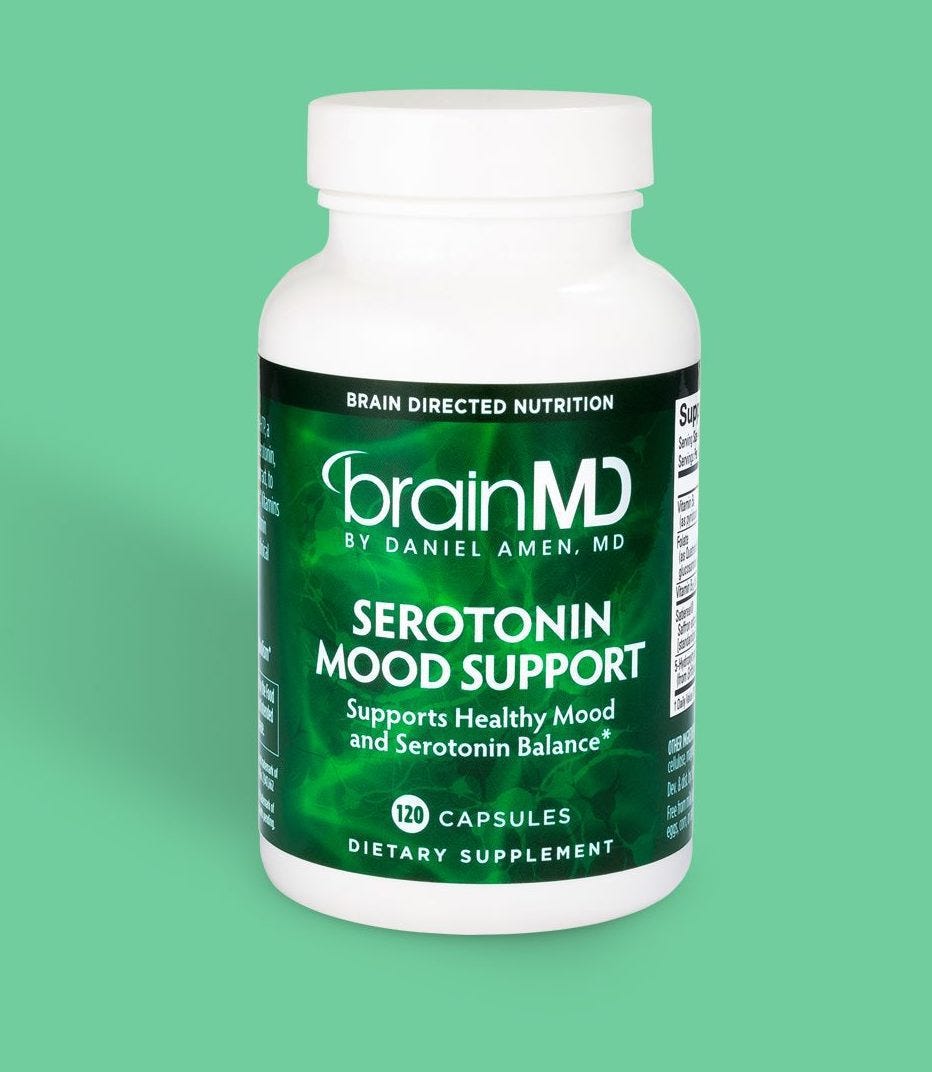Dopamine & Serotonin: What You Need to Know About These Neurotransmitters
Do you have problems with focus, mood, memory, motivation, impulsivity, inflexibility, work performance, or relationships? If so, your neurotransmitters may be out of balance.
What Are Neurotransmitters?
Neurotransmitters (or just transmitters) are substances selectively produced and released by individual nerve cells to communicate with each other by passing across junctions between the cells (synapses), of which there are literally trillions. Some transmitters also coordinate communications both within your brain and between your brain and the rest of your body.
These back-and-forth transmissions influence practically every cell, tissue, and organ function in your body. While the exact number is not known, there could be as many as 200 transmitters.
Balanced Brain Transmitters
More important than the activity of any one transmitter system is the overall balance between all the systems in the brain. When your brain transmitters are balanced, you may think more clearly, feel happier, and experience greater well-being. But when your transmitters are out of balance, you may experience difficulties in every area of your life.
Proper neurotransmitter system balance is essential for living a brain-healthy life. The better your transmitters work with each other, the closer you are to having optimal mental function. Transmitters such as serotonin‚ dopamine‚ and GABA play key roles in optimal brain functioning‚ which is essential to healthy behaviors and decision-making.
Here are the functions and benefits of two major “happiness neurotransmitters.”
Dopamine & Serotonin: 2 Natural Ways to Stay Motivated and Happy

1. Dopamine – The Motivation Molecule
Dopamine is the main neurotransmitter system responsible for making you feel motivated. Dopamine helps deliver a sense of satisfaction when playing sports, learning something new, accomplishing a task or project, or getting a promotion at work.
Often called the “motivation molecule,” the dopamine system acts via at least 5 different receptors to provide much of the drive and focus you need to be productive. It is heavily involved with:
- Attention span
- Follow-through
- Motor movements
- The ability to experience pleasure
Signs of Dopamine System Imbalance
Having a dopamine system imbalance can cause significant functional issues in your brain. Underactivity of dopamine can be associated with:
- Fatigue
- Apathy
- Lack of focus
- Forgetfulness
- Moodiness
- Sleep issues
- Sugar cravings
- Lower motivation
- Poor motor control
Unfortunately, many of the things people do to boost their focus and energy end up backfiring.
There are many unhealthy ways to get a dopamine fix. Anything potentially addicting, like nicotine, excessive caffeine, or sugar-laden/fat-filled treats, increases brain dopamine activity and can be a major cause of compulsive behavior in your life.
These unhealthy ways of getting a quick dopamine boost tend to increase the brain’s demand for dopamine, and eventually can disrupt the brain’s natural dopamine production, resulting in insufficient dopamine production and low system activity in the long-term.
2. Serotonin – The Happiness Chemical
The human brain produces a soothing neurotransmitter called serotonin, mostly from the amino acid tryptophan that is derived from dietary proteins. Serotonin regulates many transmitter systems and plays a role in the brain and body’s ability to communicate. It has been referred to as the “don’t worry, be happy” neurotransmitter.
Serotonin plays multiple roles in the brain’s functioning, including:
- Maintaining a balanced mood
- Boosting self-confidence and social engagement
- Supporting a healthy appetite
- Decreasing worries and concerns
- Facilitating deep sleep
- Sustaining the body’s 24-hour rhythms
- Enabling survival functions like body temperature regulation and breathing
Additionally, serotonin is linked with learning and memory. Interestingly, although serotonin is manufactured in the brain, where it performs its primary functions, it’s estimated that about 90% of our serotonin supply is found in the digestive tract and in blood platelets.
Signs of Serotonin Deficiency
Too many people don’t produce enough of this healthy transmitter to experience its calming, positive effects. Low activity of serotonin on certain of its 14 receptors can result in sudden shifts between low mood and overexcited mood.
Since serotonin also functions in your intestinal tract, having low activity of this transmitter is closely associated with changes in gut health and appetite. Low serotonin activity can result in:
- Difficulties with mental sharpness
- Carbohydrate cravings and binge eating
- Digestive and other intestinal problems
- Sleep issues
- Feeling overwhelmed and unhappy
- Headaches
- Anger and irritability
Healthy serotonin activity can be maintained in the brain and body by eating the proper foods and/or supplementing your diet with nutrients that facilitate serotonin production.
To increase your serotonin levels naturally, consider taking BrainMD’s premier serotonin supplement…
Serotonin Mood Support
Taking BrainMD’s Serotonin Mood Support can help increase the production of soothing brain waves, correct stress-related nutritional deficiencies, and promote relaxation that will enable quality sleep. It can help you handle the ups and downs of life with more composure. This formula includes:

- 5-Hydroxytryptophan (5-HTP) – This nutrient is readily absorbed and rapidly reaches the brain, where it requires just one enzyme step for conversion to serotonin. This enzyme also needs vitamin B6.
- Vitamin B6 – Vitamin B6 is an essential cofactor for enzymes that make serotonin and dopamine. It works in harmony with methylfolate and methyl-vitamin B12 to support a variety of neurotransmitter systems.
- Methylfolate – The B vitamin folate provides methyl groups needed to make serotonin. Methylfolate is pre-activated folate, and is the body’s most readily utilized form of this vitamin. It’s better utilized than folic acid, a manufactured substance not found in nature that many people cannot efficiently convert into usable folate.
- Methyl-cobalamin – The body’s most readily-utilized form of vitamin B12, methyl-cobalamin provides metabolic backup for methylfolate. We avoid using cyano-cobalamin, which contains toxic cyanide.
- Saffron – The world’s most expensive spice, saffron has been used for thousands of years to induce happiness. Modern saffron concentrates have consistently improved mood, anxiousness, and other mental functions in many clinical trials.
Healthy lifestyle habits, such as daily exercise, consuming whole foods, and taking a dietary supplement like Serotonin Mood Support, work together to sustain the brain’s many vital functions, maintain a positive mood, reduce negative thoughts, and promote restful sleep.
The unique nutrient combination in Serotonin Mood Support helps promote calm and a positive outlook. Try it today!
At BrainMD, we’re dedicated to providing the highest purity nutrients to improve your physical health, immunity, and overall well-being. For more information about Serotonin Mood Support and our full list of brain healthy supplements, please visit us at BrainMD.



